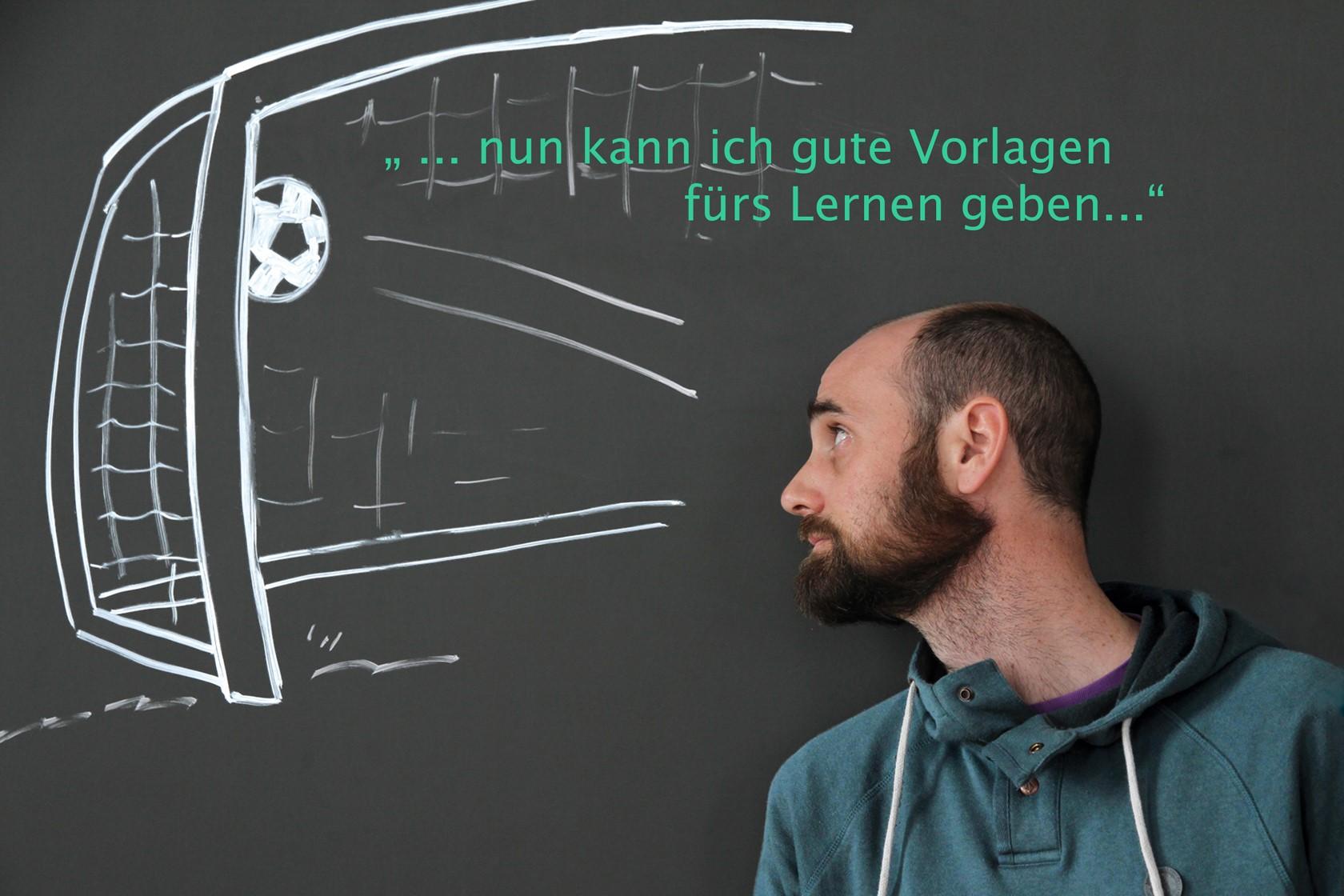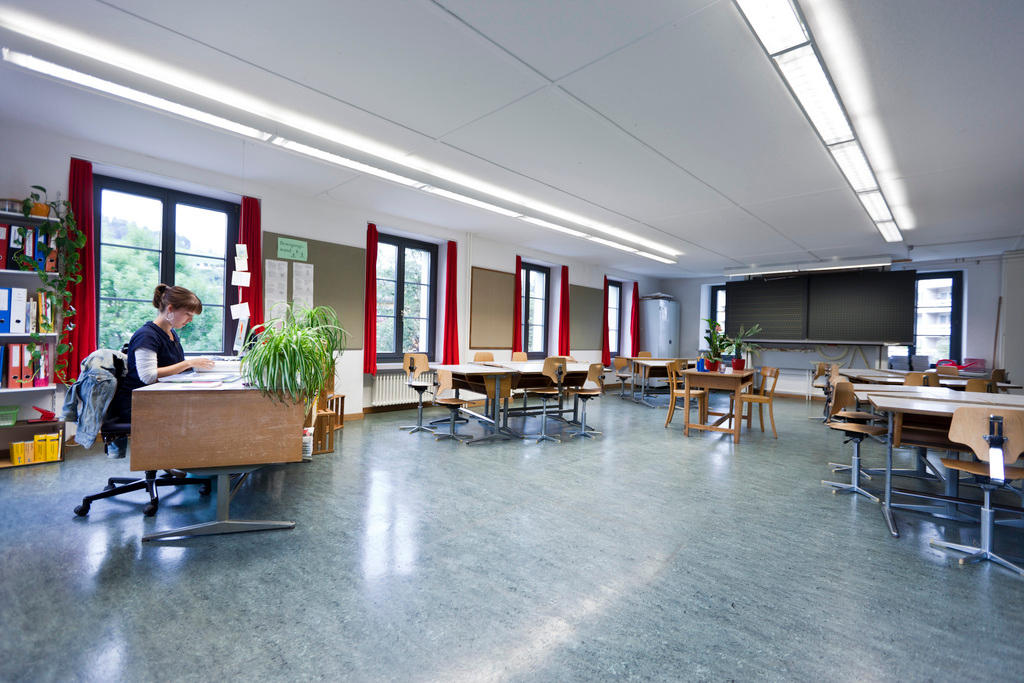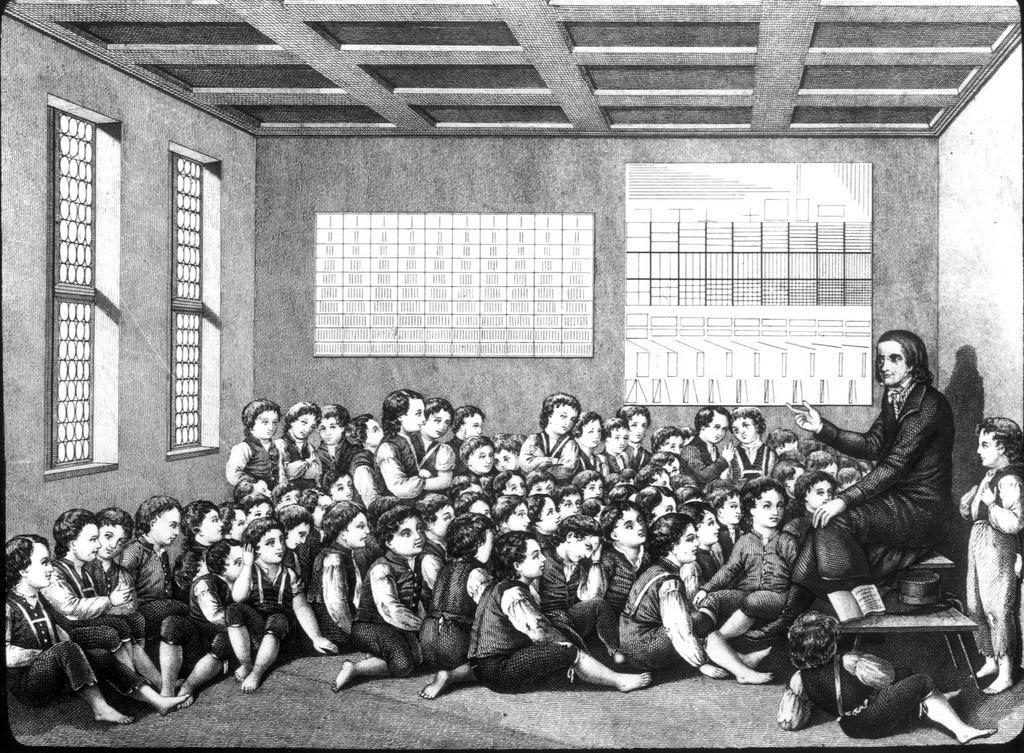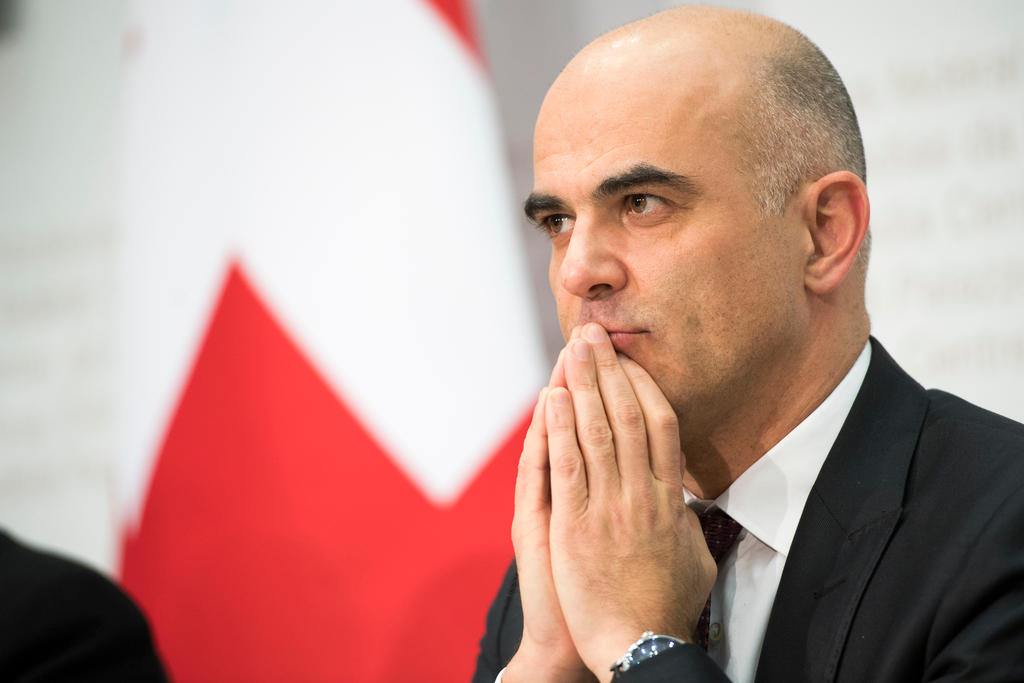Big test ahead for introduction of common school curriculum

Voters in one Swiss canton this Sunday will decide whether efforts to introduce a single school curriculum nationwide will move forward as planned.
Under Switzerland’s federal structure, education falls under the jurisdiction of each of its 26 cantons. Over the past few years, however, the cantonal education heads have drawn up common syllabi – one for German-speaking cantons and another for French ones – after Swiss voters approved a constitutional article to harmonise education.
But it’s the same Swiss style federalism that leaves the final decision on the common curriculum’s introduction to each canton. Whereas the transition to a single syllabus in French-speaking regionsExternal link has already gone ahead, a vote in canton Aargau this Sunday could slow the implementation of the common curriculum, ‘Lehrplan 21External link’, for the 21 German-speaking cantons.
It’s introduction is being fought at the ballot box by a group of teachers and representatives of parties on the right of the political spectrum. These opponents claim that among other things Lehrplan 21 is too costly and eliminates key subjects including physics, biology, history and geography.
Supporters of Lehrplan 21 argue that if the opponents’ initiative is accepted, the canton risks becoming isolated in education matters.
Kurt ReusserExternal link, Professor of Educational Psychology and Education at the University of Zurich, who president of the scientific board of the Lehrplan 21, explains what the issues are.
swissinfo.ch: What is Lehrplan 21 exactly?
Kurt Reusser: Lehrplan 21 is an element of HarmoSExternal link, which is a mandate for the education system in Switzerland to become a little more harmonised on the basis of an education article in the Federal ConstitutionExternal link. This article was voted on and accepted by over 80% of voters in Switzerland in 2006.
The cantons were obliged, among other things, to draw up a common curriculum. Previously cantons had their own curricula. Now there is a curriculum for German-speaking Switzerland and one for the French-speaking cantonsExternal link, which already exists.
swissinfo.ch: Education has always traditionally been a cantonal responsibility.
K R.: Yes, to a great extent. And here we are talking about compulsory school education [eight years primary school, three years lower secondary school], not upper secondary schools or higher education. Many countries worldwide have a centralised education system. In Switzerland, education is organised in a very federal way, which is a good thing. This ‘Lehrplan’ will not make the education system uniform. But it will ensure that, in a time of great mobility among parents and pupils and international compatibility in education, there is a common curriculum in Switzerland, at least for compulsory schooling, which sets out goals for a basic education.

swissinfo.ch: But there is still opposition to the Lehrplan 21.
K. R.: The public political debate about education has increased somewhat because people are projecting some of their political ideology onto schools. There are some groups who are going against the country’s tradition that the curriculum is not decided through parliamentary (and politicised) discussions, but by the teaching profession and their organisations.
Some of the opposition comes because the curriculum says, for example, that more significance should be given to self-regulated learning and to cross-disciplinary (social, personal) competences in schools, and that IT and media should be taught and topics like sex education and home economics should be repositioned. Or – and this is a large issue of debate – that subjects like biology, physics, chemistry, history and geography should be taught in an integrated (more holistic and interdisciplinary) manner. So, as you can imagine, you have people, also in politics, who are afraid that schools will change in a way that they don’t want.
It’s not a common, united opposition, and it’s expressed in the cantons in very different ways. The Swiss Teachers’ Union supports the Lehrplan 21 completely and so do the cantonal teachers associations. So opposition among teachers comes in pockets and is very small. But they are very present in the media and that leads to the impression that the Lehrplan is very controversial.
swissinfo.ch: And now there is the vote in Aargau.
K. R.: Not just in Aargau, There have been around four votes already and they all went in favour of the Lehrplan 21. The situation in Aargau is very specific because Aargau is shaped by tradition. It has had a series of votes on educational issues. It is also rather divided on these issues, and is, largely, more conservative than many other cantons. It’s purely by chance that it’s the next canton to vote on Lehrplan 21. There will be more votes.
swissinfo.ch:Why has there been no opposition to a harmonised curriculum in the French-speaking part of Switzerland, which has had its PEP (Plan d’études romand) since 2014/5?
K. R.: This is also a question of different political cultures. The German-speaking area is embedded in a wider German-speaking region in which the discussions around education are partly different to those in the French-speaking part. That’s why there is not a single unified curriculum for Switzerland.
swissinfo.ch: What is the future for Lehrplan 21?
K.R.: At the moment, it looks like it will be introduced in all 21 cantons in three years’ time. Until now the votes on Lehrplan 21 have been positive and we can mostly expect the results to be positive for the cantons in which the Lehrplan 21 is nearly ready to be introduced. But the debate on Lehrplan 21 could flare up again if, for example, canton Aargau decides differently.
Lehrplan 21: the philosophy
The Lehrplan 21 is based on competencies – with goals on what the pupil should know by a certain class level rather than what should be taught to them.
“It’s about increasing technical knowledge, transferable skills and personal development,” Reusser says. Pupils should be prepared for a life in which they will constantly be learning, working and listening to others, problem solving, needing to be part of discussions and forming an opinion, he adds.
Some subjects will be taught together as one unit. For example: Natur Mensch Gesellschaft (Nature, People, Society) will encompass geography, physics, chemistry, biology, history, political education, and society issues. The idea is to make pupils aware of how today’s problems are interlinked.
Foreign languages: in 2004 the Swiss Conference of Cantonal Directors of Education agreed that children should learn 2 foreign languages: a second national language and English. It is up to cantons which language is learned first. This strategy was started before the Lehrplan 21, but the Lehrplan 21 has taken it over and adapted it. The language issue – how many pupils should learn and fears over the popularity of English over national language French – remains unresolved.
Around the cantons
Voters have supported Lehrplan 21 in votes in the following cantons:
On November 27, 2016: cantons Schaffhausen and Thurgau.
On 25 September 2016: canton St Gallen (initiative to leave the HarmoS agreement, which targeted Lehrplan 21).
On June 5, 2016: Basel Country
In canton Schwyz the cantonal government declared an initiative against Lehrplan invalid, a decision later supported by the Swiss Federal Court after the initiative’s backers appealed. There is an initiative pending in canton Solothurn. No official date yet for the vote, but possibly May/June 2017.

In compliance with the JTI standards
More: SWI swissinfo.ch certified by the Journalism Trust Initiative














You can find an overview of ongoing debates with our journalists here . Please join us!
If you want to start a conversation about a topic raised in this article or want to report factual errors, email us at english@swissinfo.ch.